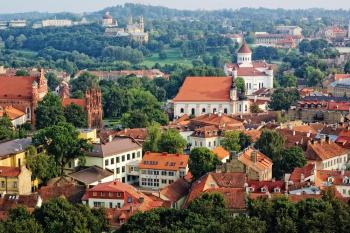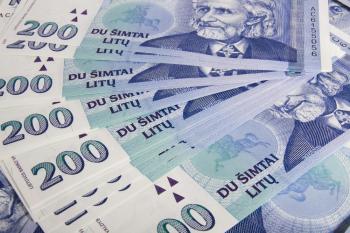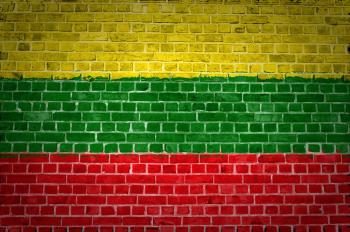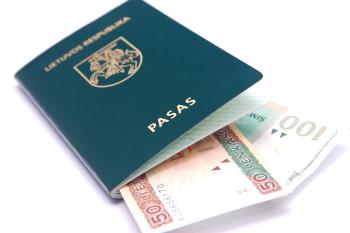find your perfect postgrad program
Search our Database of 30,000 Courses
Postgraduate Study in Lithuania
Find courses in LITHUANIALithuania sits at the edge of the Baltic Sea, and is one of Europe’s oldest and richest cultures. After becoming a single nation in 1236, Lithuania was granted its independence from the Soviet Union in 1991. It then joined the EU in 2004.
Lithuania, alongside Latvia and Estonia is a Baltic country with its language belonging to the Indo-European linguistic family. Lithuania is the largest of the Baltics, and has a population of around three million people. It shares borders with Latvia, Belarus, Poland and the Russian exclave of Kaliningrad Oblast.
The country is divided into five distinct ethnographical regions: Aukštaitija in the north- east is known for its ancient songs and breweries, while Žemaitija in the north-west, is known for its crafts including carpentry and pottery. Dz?kija in the south-east is famous for its forests and wild mushrooms, which are considered delicacies, and S?duva in the south-west is known for its agricultural traditions. Lastly, Lithuania Minor the sea-coast region and is world renowned for its UNESCO World Heritage Site, the Curonian Spit: a beautiful expanse of desert-like sand at the edge of the Baltic Sea. Each region has its own unique traditions, tastes, food and music that form the overall Lithuanian culture.

Known for its love of basketball, the Lithuanian national team is ranked 5th in the world. Lithuania is also known for its celebration of jazz music, with several large jazz festivals taking place in the spring and summer.
The country’s currency is the Lita, which is currently worth 0.29 cents to the Euro.
Studying in Lithuania: Lithuanian Universities and Education
With its first institution, Vilnius University, founded in the country’s capital city Vilnius in 1579, Lithuania has a long history of higher education.
Lithuanian universities come in two categories: State institutions and Non-state institutions. Non-State institutions are given a license from the government that allows them to teach their own curriculums, while State institutions follow state- recommended curriculums.
Most courses are taught in Lithuanian, the country’s national language, which is similar to Latvian. However, some universities including Vytautas University, Kaunas University and Vilnius University do offer courses in English. If you elect to study in Lithuanian, a language course can be arranged.
Postgraduate degrees from Lithuania can be earned in a variety of subjects including Law, Humanities, Arts and Sciences, and are internationally recognised. Lithuania is one of 29 countries that have signed the Bologna declaration, which instates a common educational standard across Europe.
Lithuania: university tuition fees and funding
 University tuition fees
University tuition fees
University tuition rates in Lithuania vary according to postgraduate program and to the chosen institution of study, but on average the annual costs for a postgraduate program is between €2,000–€5,000 per annum.
Funding opportunities in Lithuania
Funding for postgraduate study in Lithuania is available in the form of a variety of state scholarships offered to international students depending on their country of origin. Lithuanian institutions also take graduates awarded international bursaries like Fulbright and Erasmus.
Individual institutions may also provide their own scholarships, so it is worth researching options available at your university of choice.
Students who demonstrate academic excellence can apply for state-funded education, whereby their education will be paid for by the state and of no cost to the student. 50 places in the scheme are reserved for foreign students from the EU and non-EU countries.
Living as a student in Lithuania
Lithuania is a fairly inexpensive place to live, even in the big cities, which makes postgraduate study in Lithuania a worthwhile investment. The country’s currency is the Lita, which is worth 0.29 cents to the Euro.
Living costs
The monthly living costs for a postgraduate student in Lithuania are estimated to be around €400 including accommodation – which makes it a very affordable European country to live in. A rough breakdown of expected living costs is given in the following table – although these amounts will obviously change according to the personal spending habits of the person.
Accommodation - €100
Food - €110
Healthcare Insurance - €20
Public Transport - €15
Books/Study Tools - €105
Miscellaneous - €50
Student accommodation
Lithuania is a great choice for international students for no other reason than most universities will offer accommodation to their students. In fact almost 90 % of Lithuanian university students are given accommodation in the halls of residence - this makes the transition to study in another country so much easier. If you can't get into university halls of residence, or would rather live in private accommodation - this too is easy and relatively cheap to come by. It is advisable to contact your university as soon as possible and find out what options are available.
Transport network
Lithuania is well connected by bus and train, and with three international airports, travelling by plane is also feasible. Driving is one of the more popular ways to travel, and roads are well equipped within the country. If you don’t want to drive however, taxis can be an affordable way to get around within cities.
Lithuania: visas and immigration
Unless you are from Lithuania it is important to contact your university with regard to gaining a visa or residence permit as proof of enrolment will be required to verify any of this documentation.
EU students
Citizens of the EU may stay in Lithuania for up to three months in a six-month period without a visa, after which they will need to apply for the TRP or permanent residence permit.
Non-EU students
Non-EU students will need “Visa D”, which will allow them to stay in the country for three months in a six month period, after which they will need to apply for a temporary residence permit or TRP which is valid for one academic year, and will need to be renewed two months before it expires.
Visa D
In order to apply for Visa D, students will need to take the following documentation to their Lithuanian embassy:
1. Passport
2. Original copy of your bank statement providing evidence of ability to support yourself for the duration of your studies.
3. Letter of Acceptance from university.
4. Health insurance that is valid in Lithuania.
Further documentation may be required so check with your local Lithuanian embassy before you go.
Temporary Residence Permit / TRP
To apply for a Temporary Residence Permit the same documentation as a Visa D will be required (EU students will probably be able to provide ID card rather than passports if they wish). All students will also need to provide proof that they have at least €115 per month to support themselves.
Lithuanian life: festivals in Lithuania
 The country of Lithuania enjoys celebrating all aspects of life and its traditions by holding festivals. Lithuanian festivals cover everything from crafting to food to music and dance, and different regions have different celebrations in each season.
The country of Lithuania enjoys celebrating all aspects of life and its traditions by holding festivals. Lithuanian festivals cover everything from crafting to food to music and dance, and different regions have different celebrations in each season.
Muge (meaning ‘Fair’ in Lithuanian) can be a great way to learn more about Lithuanian culture and traditions, as well as other regions of the country.So while you are studying in Lithuania make sure you get out there and experience some festivals.
Some of the larger fairs include the Kaziuko Muge, a crafts fair celebrating the beginning of spring, and the Sea Festival: a three-day summer festival in Klaipeda and the largest festival in the Lithuanian calendar. The sea festival celebrates seamanship and nautical professions.
Another Lithuanian festival is the Kaunas Jazz Festival. For the past 21 years, the festival has brought thousands of fans to Kaunas to participate in celebration of live jazz music. Musicians from all over the world perform at this festival every year. Although it is traditionally held in the spring, there are also concerts given in autumn and just before Christmas.
Can’t decide between music and culture festivals? Why not combine the two in the Vilnius Festivals. This is a gathering of the ten largest festivals celebrating Lithuanian art, culture and music including the Gaiada, a modern music festival, the Sirens, a theatre festival, and New Baltic Dance, a celebration of contemporary dance from countries like Kazakhstan, Slovenia, Russia and Belarus.
Kino Pavasaris, which literally means “the spring of cinema”, is another of the ten Vilnius Festivals and is an international film festival. And another date for your diary – don’t forget Vilnius City Fiesta, the open-air city festival complete with market stalls, food, fun, and so much more!
PLEASE NOTE: As a result of Brexit, from Autumn 2021 postgraduate students from the European Union studying at a UK university will be charged the same tuition fees as international students. Meanwhile, UK students studying their postgraduate course at a European university are also likely to incur higher tuition fees than their EU counterparts. It is advisable to check with the individual universities in the UK and Europe for up-to-date information on tuition fees for all postgraduate programs.
Apply for a Postgrad Solutions Study Bursary

